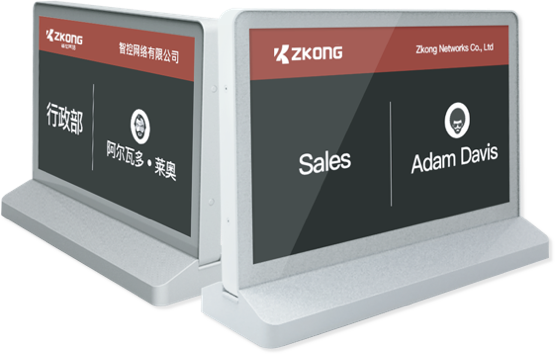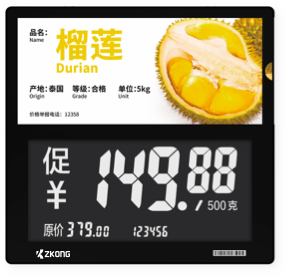The retail sector is constantly adapting in today's technologically advanced times to fulfil the needs of shoppers. The Electronic Shelf Label (ESL) technology is a game-changer in the retail industry since it allows stores to better track inventory and communicate with consumers. Digital price tags, or ESLs, have several advantages over their paper counterparts that help streamline retail operations, improve the consumer experience, and increase productivity.
Instantaneous Price Changes
Elabels' capacity to give instantaneous pricing changes is perhaps one of its most appealing features. When prices are adjusted, paper price tags need to be replaced, which is a labor-intensive process in traditional retail. Shelf Labels allow stores to make instantaneous, centralised pricing adjustments. As a result, stores may instantly modify prices in response to market fluctuations, run time-sensitive promotions, and respond to customer demand without having to constantly update price tags.

More Accurate Prices
Since Electronic Shelf Labeling is automated and linked directly to the point-of-sale system, they effectively eradicate pricing problems. Because of this, there is less of a likelihood of price disparities between the shelves and the register, which can lead to unhappy customers. In addition to reducing the possibility of incurring penalties or legal trouble, the ability to rapidly adjust prices also guarantees compliance with pricing rules.
Efficiency Gains in Day-to-Day Operations
Especially for big retail establishments, managing paper price tags manually may be a tedious and time-consuming operation. Electronic Shelf Labels streamline this procedure by automating pricing changes and cutting down on the amount of labour required to implement them. Workers no longer have to spend unnecessary time updating paper labels and can instead devote their efforts to providing better customer service and merchandising. Retailers can save money and better deploy resources thanks to this increased effectiveness.
Strategies for Dynamic Pricing
With the help of Digital Shelf Labels, businesses can easily adopt and deploy dynamic pricing strategies. With real-time pricing analytics, retailers can respond to fluctuations in demand, supply, and competition. Retailers may attract more consumers by offering discounts during off-peak hours, for instance, and charging higher rates during peak times. Maintaining a competitive edge in a dynamic market requires the use of dynamic pricing strategies. Esl tags are used widely.
Enhanced Interactions With Customers
Using digital shelf tags is a great way to wow your customers. Consumers are less likely to experience stress and misunderstanding as a result of outdated price tags. In addition, digital price labels allow for the display of product descriptions, reviews, and nutritional information right on the shelf, giving customers with this important data at the point of purchase.

There are several ways in which Electronic Shelf Labelling might improve the retail sector. These digital price tags are advantageous because they can dynamically adjust prices, provide accurate prices, streamline operations, and increase customer satisfaction. They improve the client experience, make inventory management easier, aid in environmental protection, and encourage uniform pricing throughout sales outlets. There are a lot of Benefits of Electronic Shelf Labels. To help businesses succeed in today's highly competitive retail environment and to give consumers the best possible experience, ESLs are becoming more and more important as technology develops.


